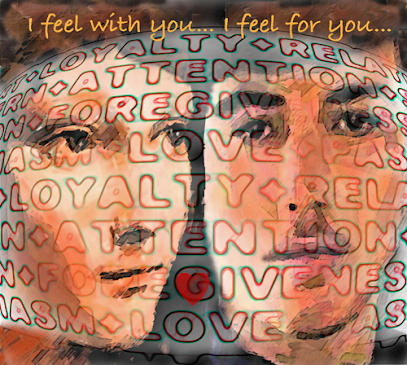Justice as a Virtue
Justice as virtue, originally construed as an individual character trait, persistently oscillates between personal and institutional referents, epitomized by Rawls’ dictum of justice as “the first virtue of social institutions,” yet rooted in the Platonic-Aristotelian tradition where it simultaneously anchors psychic and political order. This duality invites conceptual equivocation: justice as internal moral excellence or as external normative imperative. The transition from Plato’s all-encompassing ethical ideal to a narrowed focus on distributive claims—property, owed merit—signals a paradigmatic constriction that marginalizes the holistic virtue-ethical matrix, privileging instead a partial, transactional conception centered on rights and distributions.
Plato’s Republic enshrines a contentious ontological isomorphism between individual and polis justice, predicated on functionally segregated psychic and civic elements, thereby defining justice as the harmonization of constituent parts and repudiating sophistic relativism and conventionalism. Aristotle complicates this by demarcating “general” justice as total virtue and “particular” justice as proportionality in distribution and rectification, embedded within his doctrine of the mean, yet the interpretive impasse between norm-prior readings—that view justice as external rule compliance—and virtue-prior interpretations—that posit the virtuous agent as norm origin—remains unresolved, reflecting underlying tensions in the locus of moral authority.
This bifurcation permeates modern theorizing: Rawlsian contractarianism exemplifies norm-prior frameworks that subsume virtue under predetermined institutional principles, whereas neo-Aristotelian and Kantian-inflected virtue ethics reclaim the primacy of character in constituting justice’s normative content. Epicurean ataraxia and Humean sentimentalism recast justice’s virtue instrumentally, as a socially emergent convention born from scarcity, limited benevolence, and the calculus of utility, with Hume locating its genesis in artificial conventions engendered by enlightened self-interest rather than intrinsic passion, thereby securing its normative force through systemic utility and social approbation.
Adam Smith extends this by rendering justice a “negative virtue,” primarily a restraint regulated by moral sentiments rather than rational deliberation, reinforcing norm-prior dominance while incorporating affective dynamics. Contemporary models emphasize justice’s emotional constitution—a durable disposition to recognize and rectify injustice—yet frequently anchor virtue within externally defined “objective justice” norms. Drydyk’s capabilities approach encapsulates norm-prior perspectives prioritizing the rectification of fundamental inequalities, thereby subordinating individual virtue to prior evaluative standards oriented toward human flourishing.
Consequently, philosophical discourse on justice as individual virtue remains embroiled in dialectical tension: the constitution and content of justice contested between character and formal norms, agent and institution, particular ethical exigency and universal distributive imperatives. The trajectory charts a persistent oscillation between virtue as the source versus the servant of justice’s normative architecture, negotiating justice’s ontological place within the intertwined domains of personal morality and socio-political order.
WORDS TO BE NOTED-
-
Justice — A cardinal virtue involving fairness, equity, and giving each person their due.
-
Virtue — A positive character trait or moral excellence intrinsic to a person.
-
Eudaimonia — Human flourishing or happiness, the ultimate end in Greek ethics.
-
Norm-prior — An approach where moral norms or rules precede and determine the nature of virtue.
-
Virtue-prior — An approach where virtue or character shapes and determines the content of moral norms.
-
Distributive Justice — Fair allocation of goods, resources, or burdens among members of a society.
-
Rectificatory Justice — Justice concerned with correcting wrongdoing or imbalance between individuals.
-
Ataraxia — Epicurean concept of tranquility or freedom from disturbance.
-
Sentimentalism — Ethical theory that grounds virtue in feelings or moral sentiments rather than reason.
-
Convention — A social agreement or practice arising gradually that regulates behavior, such as property rules.
-
Capability Approach — A normative framework focusing on individuals’ real freedoms to achieve well-being.
-
Practical Wisdom (Phronesis) — The intellectual virtue enabling right judgment about how to act virtuously.
-
Sophism — A skeptical or relativist stance often opposing objective moral claims.
-
Reciprocity — Mutual exchange or regard between individuals in justice or fairness.
-
Moral Intellectualism — The view that knowing what is right necessarily leads to doing right.
-
Negative Virtue — A virtue defined by restraint or abstention, such as justice commonly requiring refraining from harm.
-
Proportionality — The principle that justice involves giving people benefits or burdens in proportion to merit or contribution.
-
Self-Love — A motivating passion that can underlie justice by aligning personal interest with social norms.
-
Contractarianism — Moral theory emphasizing social contracts or agreements as sources of justice norms.
-
Objective Justice — A conception of justice as an ideal or standard to be realized, sometimes independent of subjective attitudes.
Para Summary-
Justice as a virtue historically navigates a complex interplay between individual character and social institutional norms. Originating in Plato’s and Aristotle’s accounts, justice was seen as a central constituent of both personal morality and political order, simultaneously embodying psychic harmony and social fairness. While Plato’s model posits a structural isomorphism between the just individual and the just city, Aristotle nuances this by distinguishing between general justice as complete virtue and particular justice concerning equitable distributions and rectifications. Throughout philosophical evolution, a key dialectic emerges between norm-prior accounts—treating justice as adherence to antecedent rules—and virtue-prior views that locate justice’s normative content within virtuous character itself. Later thinkers like Epicurus and Hume reframe justice instrumentally, grounding the virtue in social utility, convention, and self-interest, shifting justice away from intrinsic moral excellence toward societal stability. Adam Smith and contemporary theorists emphasize justice’s affective and negative aspects, aligning the virtue with restraint and emotional responsiveness to injustice. Capabilities-based approaches illustrate a continued norm-prior influence, prioritizing objective criteria for justice over character traits. Across eras, justice remains a contested locus where character, norms, rationality, and affect intersect, reflecting ongoing tensions in situating justice within the nexus of personal morality and collective socio-political order.
SOURCE- STANDFORD ENCYCLOPEDIA
WORDS COUNT- 600
F.K SCORE- 17




Comments
Post a Comment